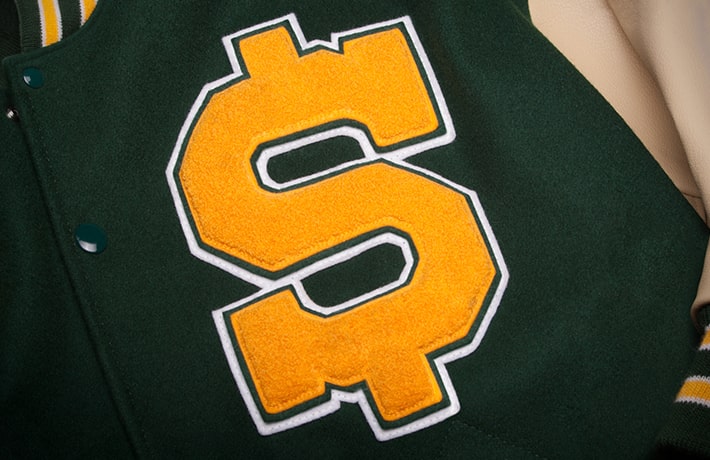07-26-2021 |
NCAA Name, Image, and Likeness ("NIL") Policy Brings Opportunities and Legal Challenges for College Athletes
By: William Daniel

On July 1, the NCAA announced that college athletes can now benefit from their name, image, and likeness (“NIL”). This drastic shift in NCAA policy brings all sorts of previously unthinkable opportunities for college athletes; however, this new world also brings many areas of concern for athletes, particularly from a legal standpoint. Athletes who are looking to start profiting off their NIL should carefully consider how these new opportunities can affect them as they try to navigate through these previously uncharted waters. In this blog, I will highlight a few key areas to keep in mind.
State Law and Compliance
First and foremost, an athlete should be thinking about what is actually allowed from a state law perspective and what would be compliant with the NCAA and their schools. On the state law side, individual states are free to create their own laws regulating NIL deals, and some states have already done so. In Iowa, no state law has been passed, but a bill was introduced in the Iowa legislature this past session that would have added additional regulation. Athletes need to make sure they are complying with the law of their state.
Also, while the NCAA is now allowing for NIL deals, it is not a complete free-for-all. Athletes are still not allowed to be involved in any “pay-for-play” situations, and boosters cannot condition a NIL deal on an athlete’s attendance to a specific school. And of course, this is only a temporary policy, so the NCAA could enact new rules at any point. While the current situation has the NCAA punting this responsibility to the states and individual schools, don’t be surprised if new rules are made that bring NCAA compliance back to the forefront.
Contract Liability
For many college athletes, the first NIL deal they sign will be the first major contract that they negotiate and sign. In any contract negotiation, it is important to understand some of the more obscure legal nuances. Depending on the type of deal being made, athletes want to be sure they are limiting their liability and risk as much as possible and are retaining as much control over their own NIL as they can. In any deal like these, how much of your own NIL rights you are giving up is vital. Athletes should not give up any more rights to their own personal brand than they need to. A thoughtful contract review with an attorney could go a long way to making sure athletes are not only protected but, more importantly, understand what some of this language means and how it can affect them.
Forming a Company
Depending on the situation, college athletes may want to form a new company to run their NIL opportunities through. On top of a good contract, operating through an entity provides another strong layer of liability protection. As an example, if a football player were to host a football camp back in his hometown and a young camper was seriously injured while participating, that college football player does not want to be personally liable for those medical bills. By properly forming a new company and having the company run the camp, that college athlete would be protected from personal liability.
Intellectual Property
This could potentially be a major issue for many athletes as they grow their brand and NIL. NIL is nothing but intellectual property, so ensuring proper legal protection for an athlete’s brand is paramount. Let’s say a basketball player begins selling clothing and developed a specific logo for that. Nobody thinks to file for any trademark protections at the beginning, and the brand continues to grow in popularity and become more and more profitable. This only spawns knock-offs and copycats trying to make a quick buck off of the brand that they had nothing to do with, and without proper trademark protections in place, protecting that brand becomes a herculean effort.
Conclusion
With all these changes regarding NIL and the NCAA, athletes have all kinds of brand new opportunities to make money while continuing to be college athletes. As a former college athlete, I understand how difficult juggling school and athletics alone can be. For many, the opportunity to make good money while playing a college sport is too enticing to turn down. But with new opportunities comes new concerns that athletes need to be considering, and having a trusted team in place can help ensure maximum protection. Our team here at BrownWinick is here to offer trusted legal advice and add value for college athletes looking to find their place within the world of NIL.
